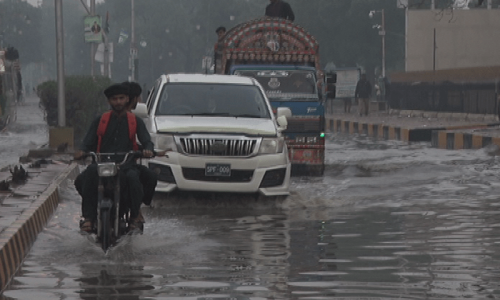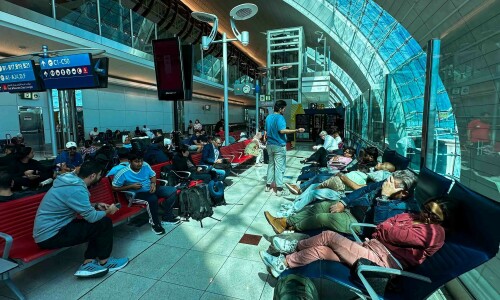ISLAMABAD: A report released by an international organisation based in Brazil has found that Pakistan’s innovative emergency cash programme (Ehsaas) helped avert an economic catastrophe during the Covid-19 pandemic.
The report, “What’s next for social protection in light of Covid-19: country responses” released by the International Policy Centre for Inclusive Growth (IPC-IG), focuses on experiences from countries in Asia, including Pakistan, sub-Saharan Africa, the Middle East and North Africa (MENA), and Latin America and the Caribbean. The deep dive into social protection responses to the Covid-19 crisis highlights Pakistan’s effort to tackle poverty amidst the biggest global crisis in more than a century and provides overall lessons for the future, including shock-responsive and universal social protection.
The report analyses how the Covid-19 pandemic was a watershed period for Pakistan in terms of government functioning: making it more agile, data-driven, experimental and ambitious.
Recounting Pakistan’s social protection response to the Covid-19 crisis, the report says, “The Ehsaas Emergency Cash (EEC) programme demonstrated how cash transfer programmes can be deployed to counter the socio-economic fallout due to external shocks such as the Covid-19 pandemic. The lockdown in Pakistan — the fifth most populous country in the world — affected the livelihoods of 24.9 million.”
The study reveals that social protection had been an integral component of Pakistan’s response to the crisis. “In response to the economic impact of the pandemic, the government of Pakistan launched the emergency cash transfer scheme and delivered approximately USD1.1 billion to 14.8 million families at risk of extreme poverty. Each low-income household received a one-time payment of USD75, enough to buy staple food items for the four months.”
Detailing the problems caused by the pandemic to different sectors, the report says that poverty on the streets was more than a statistic; it could be seen in the stories of every other Pakistani’s life. Labourers found themselves suddenly unemployed, with their families on the verge of starvation. Hawkers who would rely on daily sales from their stalls were forced out of work. Staff from otherwise busy hotels and restaurants were suddenly left sitting at home. Domestic workers such as part-time gardeners, security guards, drivers and industrial daily wagers were laid off. Fishermen, miners, transport contractors, bus drivers and hawkers in bus stations were suddenly out of a job. Beauticians and barbers, otherwise making a decent living, found themselves with no customers. Millions of shopkeepers with their savings consumed faced hunger, living behind the shutters of their closed shops. Private-school teachers received severance letters; electricians, welders, painters, carpenters, plumbers, car mechanics and construction labourers did not know where their next meal was coming from; and taxi drivers did not see a passenger for weeks on end. This was the story repeated across industries and geographies.
Further, the report highlights that the EEC programme helped change the situation and augmented the digital infrastructure already in place and followed a hybrid targeting approach to identify beneficiaries. The programme accelerated the adoption of cost-effective, digital initiatives that enabled new ways of coordinating across multiple stakeholders and deploying a whole-of-government approach.
This can lay the ground for improving the coverage and shock-responsiveness of social protection systems, the study suggests. Yet, for this to happen, it is key that the lessons learned and the gains made during the Covid-19 responses are incorporated into the national social protection systems, such as by levering databases used for emergency responses, for example, the report notes.
Published in Dawn, March 24th, 2021














































